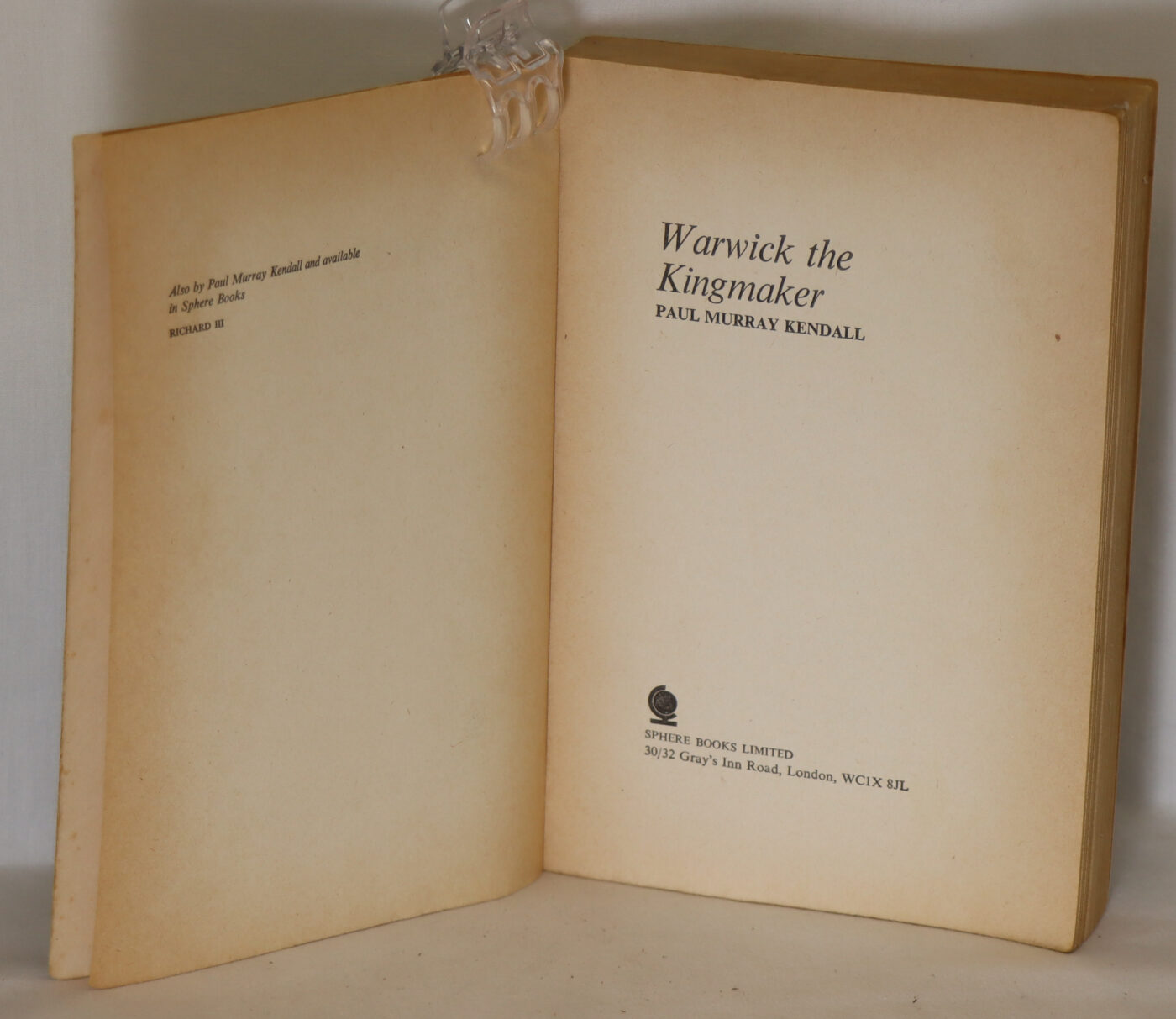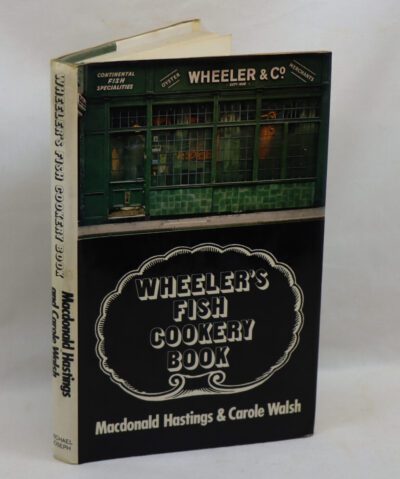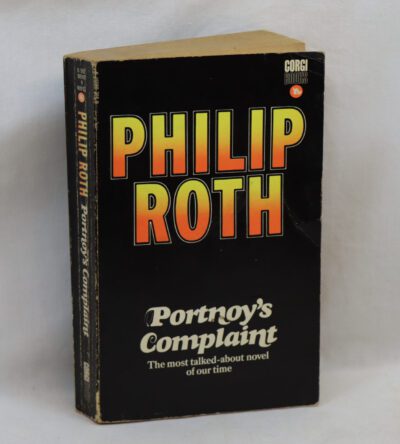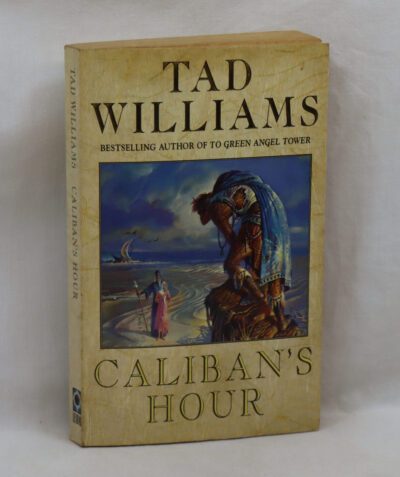Warwick the Kingmaker.
By Paul Murray Kendall
ISBN: 9780049420502
Printed: 1972
Publisher: Sphere Books. London
| Dimensions | 13 × 19 × 2 cm |
|---|---|
| Language |
Language: English
Size (cminches): 13 x 19 x 2
Condition: Fair (See explanation of ratings)
Item information
Description
Paperback. Castle attack image cover with yellow title.
We provide an in-depth photographic presentation of this item to stimulate your feeling and touch. More traditional book descriptions are immediately available
- This used book has a £3 discount when collected from our shop
For conditions, please view the photographs.
Richard Neville, 16th Earl of Warwick, 6th Earl of Salisbury, KG (22 November 1428 – 14 April 1471), known as Warwick the Kingmaker, was an English nobleman, administrator, landowner of the House of Neville and military commander. The eldest son of Richard Neville, 5th Earl of Salisbury, he became Earl of Warwick through marriage, and was the wealthiest and most powerful English peer of his age, with political connections that went beyond the country’s borders. One of the leaders in the Wars of the Roses, originally on the Yorkist side but later switching to the Lancastrian side, he was instrumental in the deposition of two kings, which led to his epithet of “Kingmaker”. Through fortunes of marriage and inheritance, Warwick emerged in the 1450s at the centre of English politics. Originally, he was a supporter of King Henry VI; however, a territorial dispute with Edmund Beaufort, Duke of Somerset, led him to collaborate with Richard, Duke of York, in opposing the king. From this conflict, he gained the strategically valuable post of Captain of Calais, a position that benefited him greatly in the years to come. The political conflict later turned into a full-scale rebellion, where in battle York was slain, as was Warwick’s father Salisbury. York’s son, however, later triumphed with Warwick’s assistance and was crowned King Edward IV. Edward initially ruled with Warwick’s support, but the two later fell out over foreign policy and the king’s choice to marry Elizabeth Woodville. After a failed plot to crown Edward’s brother, George, Duke of Clarence, Warwick instead restored Henry VI to the throne. The triumph was short-lived, however: on 14 April 1471, Warwick was defeated by Edward at the Battle of Barnet, and killed.
Warwick’s historical legacy has been a matter of much dispute. Historical opinion has alternated between seeing him as self-centred and rash and regarding him as a victim of the whims of an ungrateful king. It is generally agreed, however, that in his own time, he enjoyed great popularity in all layers of society, and that he was skilled at appealing to popular sentiments for political support.
Paul Murray Kendall (March 1, 1911 – November 21, 1973) was an American academic and historian, who taught for over 30 years at Ohio University and then, after his retirement, at the University of Kansas. Kendall’s teaching was primarily concerned with Renaissance writing and Shakespeare. He was granted tenure in 1947, and was appointed Distinguished Professor of English in 1959, one of the first three academics at Ohio University to receive this honor. In 1950 Kendall was awarded a Marburgh Prize from Johns Hopkins University for a three-act play, The Ant Village. He published both light verse and scholarly articles. In 1952 he was awarded a Ford Foundation Fellowship which assisted him in completing Richard III, which was published in 1955, and raises the question whether or not that monarch was an usurper. It is for that work that he is best known. This work was a scholarly defence of the controversial monarch. It relied heavily on primary sources and made a significant contribution to the arguments for a favourable view of Richard. The work was critically very well received and was a runner-up for the National Book Award in 1956. Philippa Langley, who spearheaded the discovery of Richard III’s remains, cited the book as the starting point for her interest in the monarch.
In 1957 Warwick the Kingmaker and History of Land Warfare were released. In 1963 The Yorkist Age was released. In 1970 Kendall retired from Ohio University to become head of the Shakespeare Institute at the University of Kansas. In 1971 his work, King Louis XI was published, the film by Henri Helman about Louis being clearly part of a rehabilitation movement driven, among others, by Kendall. In 1979 his novel, My Brother Chilperic, was published posthumously. Paul Kendall died on November 21, 1973, aged 62. Kendall was survived by his wife and two daughters, Gillian Murray Kendall, who teaches Renaissance subjects and Shakespeare at Smith College in Massachusetts, and Caroline Kendall Orszak, who recently retired from a career in publishing in the UK, and lives in Western Massachusetts.
Want to know more about this item?
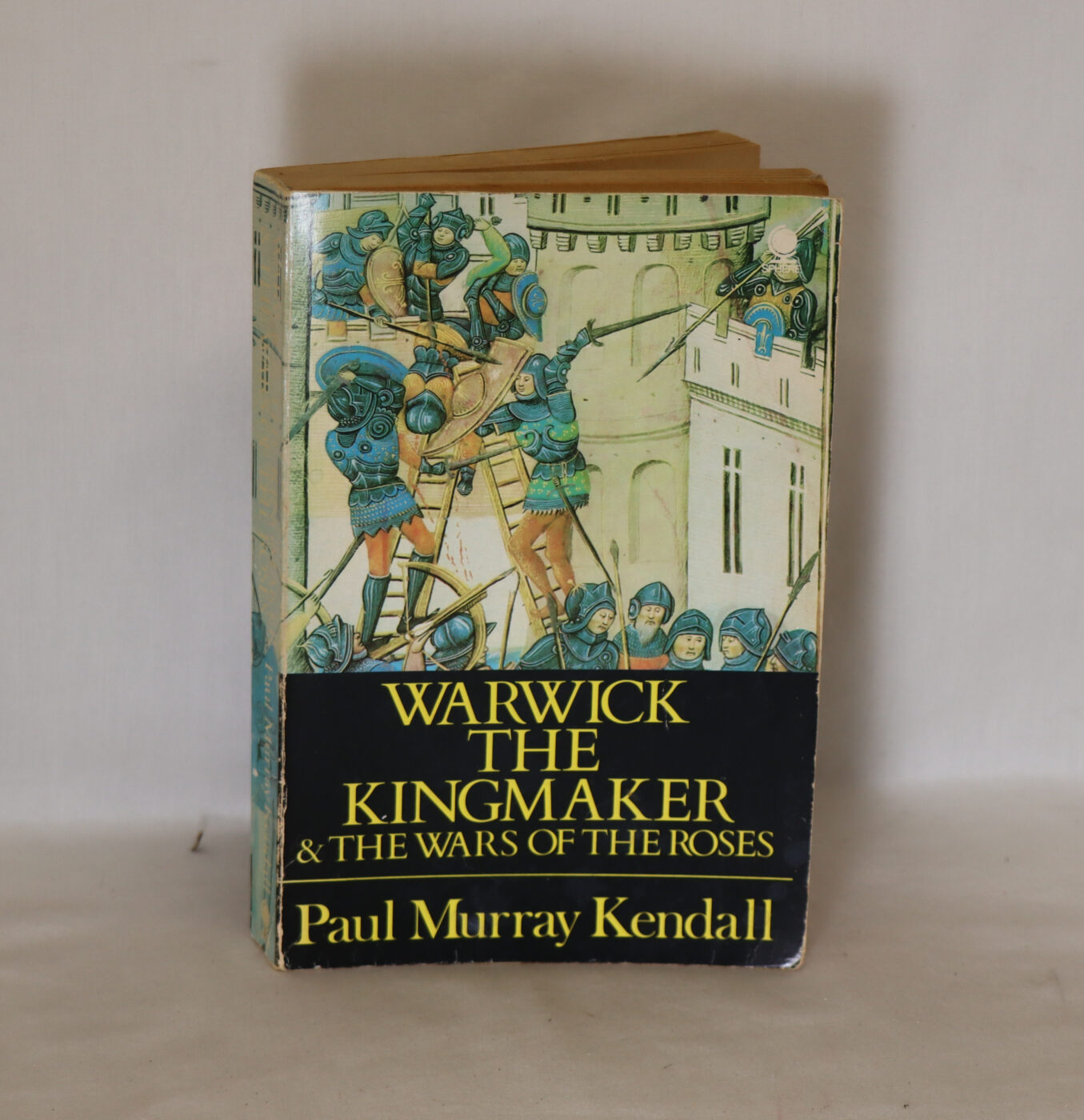
Share this Page with a friend

